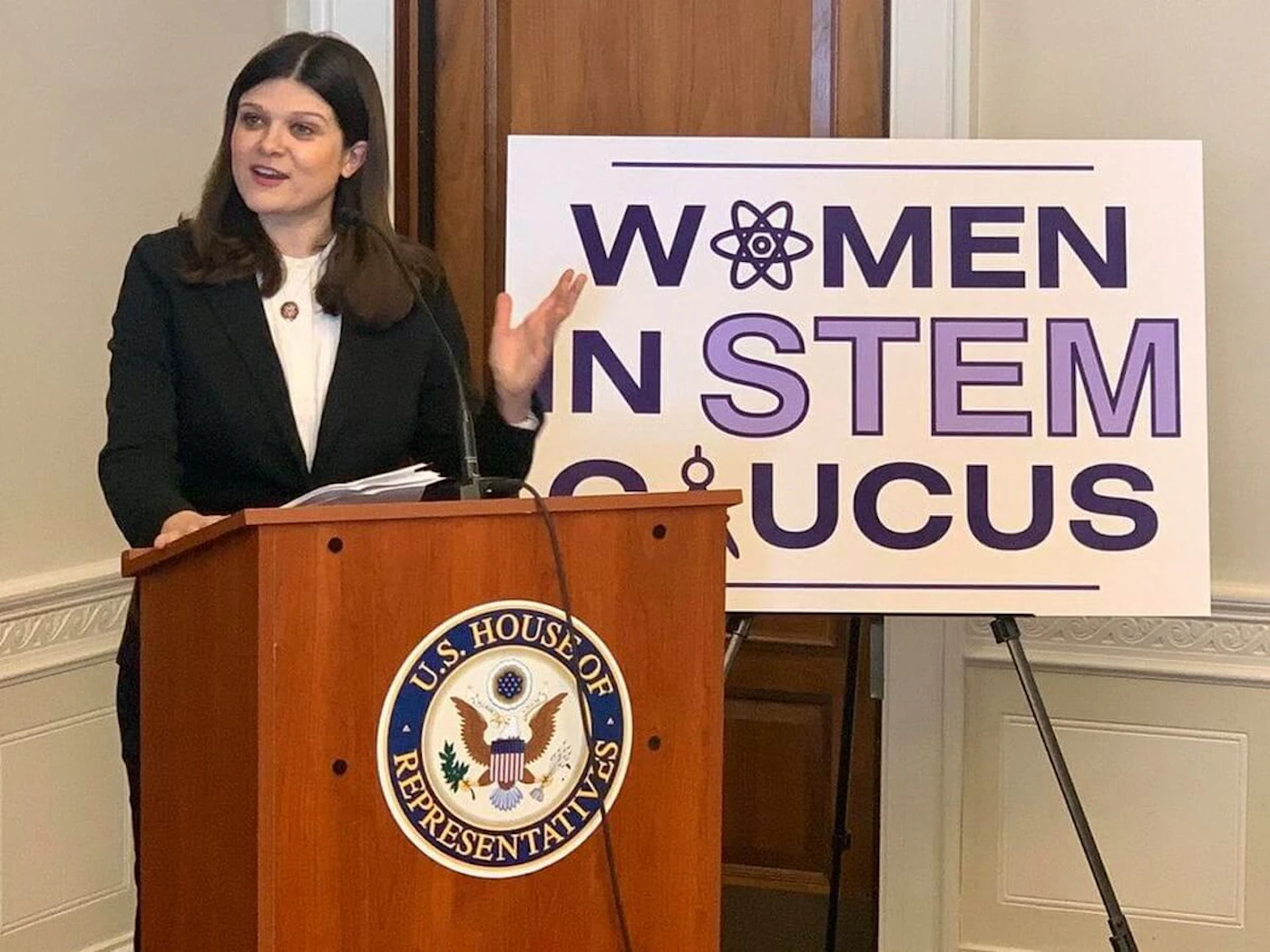The daughter of a woman entrepreneur, Rep. Haley Stevens has a passion for helping women-owned businesses.
LIVONIA, Mich.—A community largely built in the decades following World War II, Livonia boasts a wide range of women-owned businesses, from paintball fields to realtors, and that’s a point of pride for Haley Stevens.
Stevens is the Democrat elected by Livonia and its surrounding communities to represent them in Congress. And promoting the business growth of Michiganders who have a harder time getting started due to some socioeconomic disadvantages is one of her core drives in politics.
“I come from a family of female trailblazers,” Stevens told The ‘Gander. “My aunt and my mom were both women in business, they ended up going into business together, creating through I think a lot of unexpected expectations they ended up creating a very healthy and vibrant PR marketing firm that was women-run, focused on women’s issues, and I just grew up in that environment.”
RELATED: 21 of Michigan’s Best Women-Owned Brands You Should Know
Stevens said she also grew up in the Detroit suburbs in the late 80s and 90s, letting her watch the struggles the city faced in the late 20th century. Seeing the expectations on her family and the struggles of Detroit inspired her to ask the questions of how to expand opportunities for economic growth from a young age.
Flash forward to 2021, and Stevens is in Congress, making those changes and helping bolster entrepreneurship among groups who have a harder time starting their own businesses. But, she says, there’s still a long road ahead.
The Need to Foster Entrepreneurial Opportunities
Stevens pointed out that women still have a hard time getting grants and loans, are still underrepresented on corporate boards, and still face a harder road to elected office, meaning there still are too few people like her advocating for support to change these pervasive issues.
And that’s not even mentioning the ‘shecession’ prompted by the coronavirus pandemic, which pushed many women out of the workforce.
That doesn’t mean there aren’t wins, though. Women have more political power both in Michigan and in the federal government. Stevens specifically cited Gov. Gretchen Whitmer, the second woman to govern the state following Secretary of Energy Jennifer Granholm, as well as Vice President Kamala Harris being the first woman to hold that office.
SEE ALSO: Michigan’s ‘Shecession’ Could Set Working Women Back a Decade, But There Is a Plan to Help
But especially in her congressional district, Stevens knows the importance of today is in paving the road for tomorrow.
“In Michigan’s 11th District, we are about 20% under the age of 18,” Stevens explained. “There’s a big stewardship of the next generation that I take really seriously. Creating policies for a world that young people are going to inherit. And I also want them to see the things that they want to become.”
For Stevens, that was being able to see her mother and aunt as strong, successful women. She knew from a young age that she could do something similar. Then, she looks at the way people of color, and in particular immigrant communities, are often pigeonholed into certain lines of work.
That echoed a sentiment from a Black rural leader north of Stevens’ district. Alphonso Amos told The ‘Gander earlier in September that often Black workers are directed into manufacturing work in Michigan.
How Stevens Is Helping Broaden Small Business Opportunities
She framed the progress being made electing women into politics as a pivotal moment. Elected as part of 2018’s wave of women brought into office by voters, she’s determined to make the most of that moment.
“I have crafted and introduced legislation, it took a long time to do it, to create a Minority Accelerator Grant Program through the Department of Commerce that would provide assistance to minority business owners,” Stevens said.
An analysis of such a program by Brookings found that for relatively small investment, a program of that type could address issues like gender and racial wealth gaps and aid in the financial recovery from the COVID recession as well. Those very factors are ones that have made entrepreneurship harder for underrepresented entrepreneurs.
UP NEXT: How the Skills of People Fleeing Crises Bolster Michigan’s Culture and Economy
Stevens also connects directly with her women entrepreneur constituents through a program she calls Women-Owned Wednesdays. One of these meetings really stuck out for Stevens, as the businesswoman she was talking to was interested in hosting workshops to train women fleeing violence in Afghanistan to start businesses in Michigan, and perhaps add to the women-owned culture of Livonia.
“And it was so inspiring to hear her come to me with that idea and already be thinking through around those pathways to entrepreneurship,” Stevens said. “There’s a tremendous amount of opportunity for Michigan here, with these refugees, to integrate them into our economy and to empower them as business owners.”
Helping foster the entrepreneurial spirit is something Stevens is deeply passionate about, and it seems her community shares that passion.





